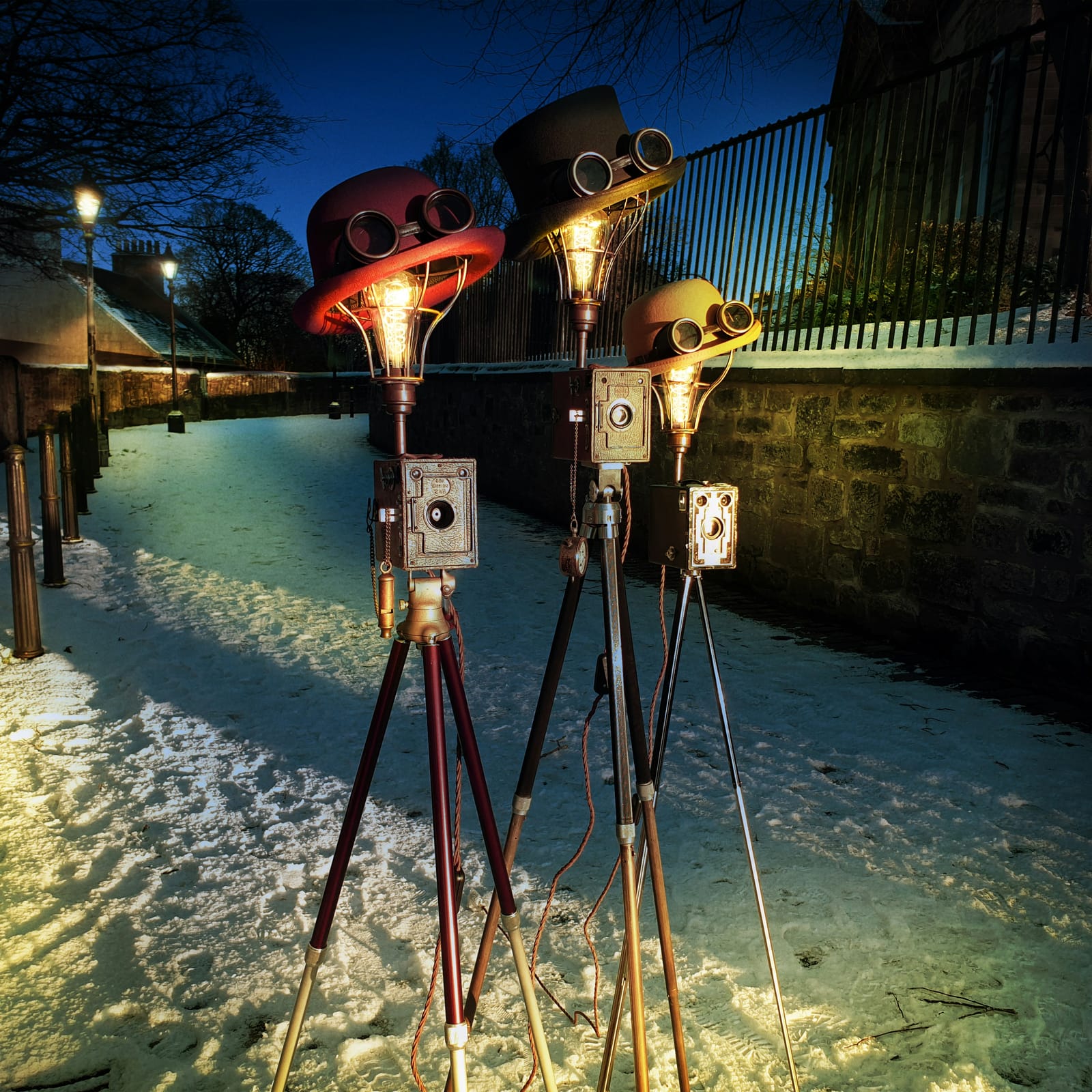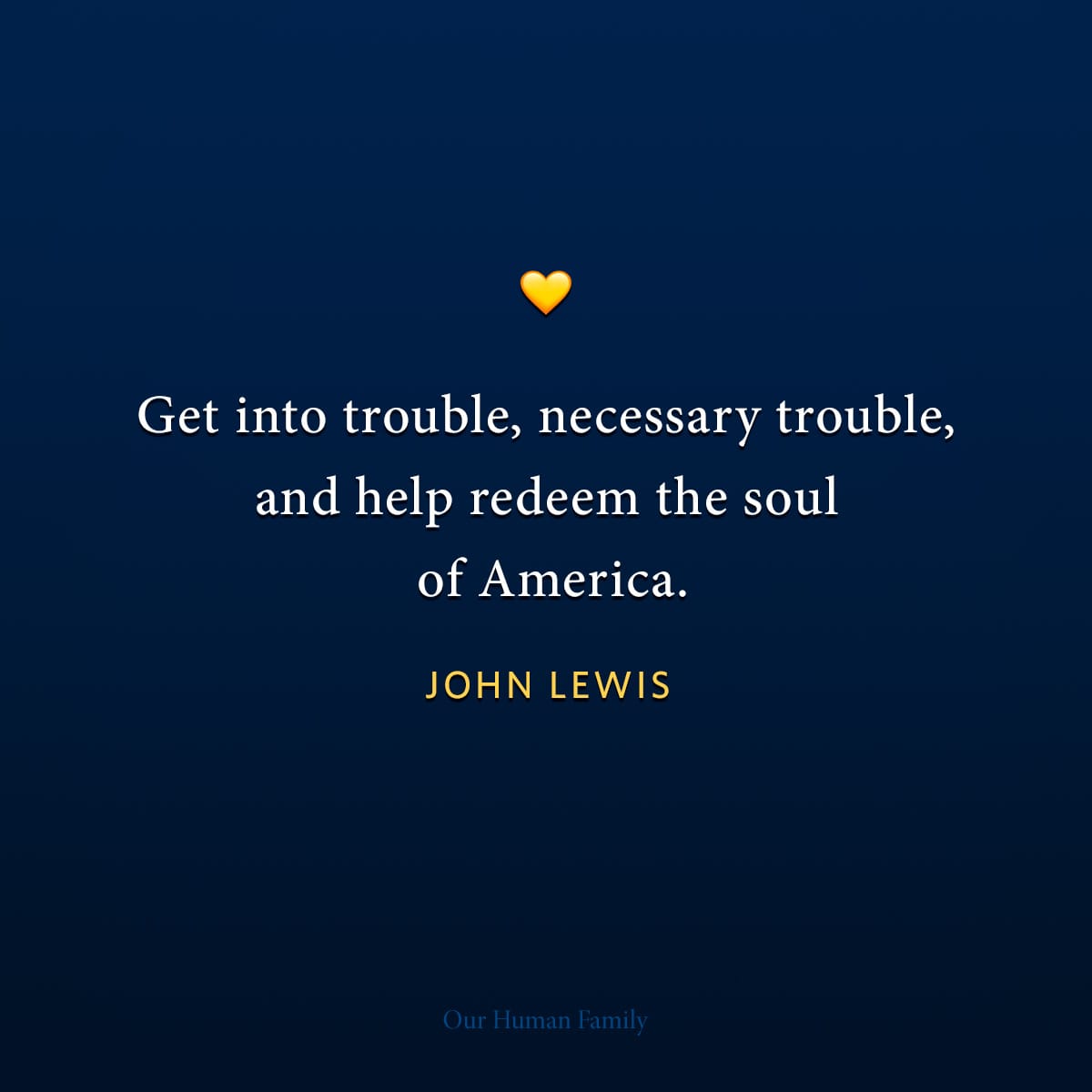|
OHF WEEKLY, VOL. 6 NO. 8 On collaborations with international writers and editors about racism, a brief hiatus, PLUS tips for impactful advocacy.
💛 Hey Reader, Eight years ago, I penned “How I Talk to White People About Racism” as an unofficial manifesto, a treatise on my blog I could point friends to and pause the recurring conversation that had been popping up with several of my white male friends. Ah, sweet naiveté. Unknowingly, the essay became a public declaration of my identity as an author, a practicing Christian, and an accidental activist. The New York Times published an abridged version of the essay and, in doing so, publicly affirmed my ability to express in words what it means to be and to accept everyone as fully human. Once I published the complete version of “How I Talk to White People About Racism” at Medium.com, the piece connected with a different audience, and their positive responses proved overwhelming. Back then, Medium was all about the art of writing fiction, nonfiction, poetry, and news. I was fortunate to fall in with a circle of exceptional writers who, by sheer virtue of their writing ability, inspired me to step up my writing game, which helped me find my writing voice. Two years later, I felt called to start a publication on Medium when a couple of writer friends informed me that Medium wanted to sponsor a few publications and that I should consider applying. While I had corporate communications experience with Disney, I didn’t feel equipped to head an online pub. But that was okay because I believe, as do many Christians, that God doesn’t call the equipped; he equips those he calls. And that was certainly the case when the big brains at Medium interviewed me about my hastily dashed-off proposal for Our Human Family. They’re amazeballs! Ultimately, Medium creatives opted not to fund the publication and developed their own well-heeled version instead. Still, like Abraham’s ram in the thicket, a cadre of talented writers with online publication experience came out of nowhere and facilitated the launch of Our Human Family. Shortly after, the IRS designated Our Human Family Inc. a 501(c)(3) charitable organization. Since Our Human Family (the publication) and Our Human Family, Inc. (the nonprofit) didn’t have the funding to compensate writers for their articles, I made the decision early on that we would offer writers the best we could: a welcoming and supportive editorial experience that presented authors’ works that aligned with our ethos in the best possible light, but without changing the writers’ voice. Enter Stephen Matlock, a professional editor by trade, and Sherry Kappel, poet, essayist, and MFA graduate of the prestigious University of Pittsburgh. Stop! Before I go any further, I have something to tell you. As of this writing, these two people—who I still have yet to meet in person—have done more to elevate the quality of Our Human Family’s communications than probably anyone else. Their expertise in editing and writing took my ideas for our publications to the next level. Without them, I don’t know what would’ve happened. They are godsends of the highest order. And I love them deeply, not just because of their writing prowess but because of the people they are, their patience with me, and the passion they have for racial equity. Just read a little of their writing if you haven’t already. They’re amazeballs. Amen! So where was I? Oh, yeah . . . to make the editing process as painless as possible, we strived to treat our writers with the same optimism, care, and respect we encouraged our readers to practice. And the drafts rolled in.  We’ve published works by well-known writers Terra Kestrel, antiracism writer and educator Tim Wise, and not-so-well-known but very experienced writers—Lecia Michelle, Christienne Hinz—who consistently submitted immaculate drafts that were so tightly constructed, so perfect, to change a single would be like cutting a giant swath from a glorious painting. We published the works of the radiant Joél Leon, whose works glowed with such brilliance, we knew national recognition of his greatness was inevitable. And in a short time, Mr. Leon has not disappointed. (See receipts.) We’ve had the distinct pleasure of working with talented writers—Charles Estacious White and Jesse Wilson—whose first drafts were compelling but needed polishing. But thanks to each man’s unique lived experience and dedication to the craft, their published versions turned out more dazzling than we could have imagined. They, too, grew exponentially in their ability to connect with readers. The implication is not that they were poor writers—that’s not the case at all, but that they sharpened their literary style and expanded their preferred genres. Hands down, my favorite “diamond in the rough” anecdote occurred when William Spivey, one of our then-new writers, referred Cocoa Griot, a highly regarded poet, to us for a nonfiction Black History Month article. She submitted what I considered to be a powerful draft that needed a lot of work. The news that I regarded the piece as promising relieved her because she believed the draft was “a piece of garbage” and felt “so embarrassed.” She and I worked our butts off over the next few days and published “The Little-Known History of the Underground Railroad to Mexico” to rave reviews. Readers liked the article so much that Medium promoted it . . . to make a long story short, Ms. Griot’s article is still one of our most popular pieces! And I don’t think Ms. Griot will ever think of her drafts as garbage again. And I can’t forget the historians, lawyers, and educators who’ve written for us. What’s thrilling is stumbling upon an essay in which the writer unapologetically reveals their depth of character and sweeping understanding of exactly how racism works within the first couple of paragraphs. That’s happened several times, most notably with Christienne Hinz, Rebecca Hyman, and Kim McCaul. These three writers accurately diagnose the cause of race-based prejudice and prescribe its remedy with such surgical precision that 1) leaves no room for misinterpretation and 2) doesn’t put the reader on the defensive. Try doing that sometime. It’s neither simple nor easy. And I can’t forget the historians, lawyers, and educators who’ve written for us. Sabrina Bryant, Michael Greiner, William Spivey, and Sylvia Wohlfarth narrate historical events cogently with a clear-eyed point of view that demonstrates how current events are informed and shaped by past events. The fact that I have excessive difficulty tackling anything vaguely resembling history gives me a greater appreciation for these writers’ talents, which they so easily wield. There are dozens upon dozens of writers I’ve worked with who, through their trust in what we were attempting to do, have taught me so much more about myself, people, and life that it’s made this whole editor-in-chief/writer relationship thing seem a little lopsided in my favor. One thing I’ve seen lived out that confirms a longtime belief is the way even people with the most unlikely upbringing can find their way to truth, abandon racism, and become a valuable and vociferous ally. I’m thinking of Glenn Rocess, who was born and raised in the Mississippi Delta, “ground zero for racism,” as Glenn has said. If you haven’t you need to read a few of his articles.  OHF Weekly editors and writers’ shared belief that people can abandon race-based prejudice and familiarity with what the process involves has been the catalyst for not only the Medium publication Our Human Family and the charitable organization of the same name but also the literary publication OHF Magazine, the anthology Fieldnotes on Allyship: Achieving Equality Together, the indie online publication OHF Weekly, and most recently our workshop Allyship 101: The Basics. As with countless Americans, the heinous public lynching of George Floyd, rocked me to my core. It was a call to action for millions of people around the world. I’ve long thought that everyone has a role to play in eradicating the lies of race and racism, but marching in demonstrations was not the role for me. For reasons of pure self-preservation, public demonstrations were not a form of protest for me. Marching at a height forty-eight inches tall, surrounded by hundreds of protestors, carried with it the risk of too many up-close encounters with elbows and butts. I wasn’t going to put myself in that situation. Plus, my nineteen-inch inseam would afford little to no advantage for getting out of harm’s way, especially if said harm showed up as a car careening wildly down the street. Nope, I wasn’t going to do that. Indeed, there had to be other people who wanted to get involved for whom peaceful marches en masse were not an option. But there was one thing I could do: write. I was no James Baldwin by any stretch of the imagination, but my writing was good enough for The New York Times to publish one of my essays. I knew a few talented writers. I had a knack for bringing like-minded people from various walks of life together to complete a project, coupled with years of experience as a print and award-winning consumer products art director for Disney. I had even self-published a couple of books. So, I set my sights on putting together a book, actually a handbook, for people who actively wanted to advocate for racial equity, allyship, and inclusion but needed help figuring out where or how to begin. The publication’s premise: introduce readers to Black authors and their works – without the histrionics, ignorance, fear . . . In less than five months, Sherry, Steve, and I nailed down a concept and outline, solicited writers to write chapters, proofread, edited, designed, and published (in print and digital formats) Fieldnotes on Allyship: Achieving Equality Together. Everything fell together effortlessly. Okay, maybe not quite “effortlessly,” but it all came together. Of all the works Our Human Family has published, Fieldnotes on Allyship is by far the project I’m most proud of. It’s a practical anthology written by eighteen people from different backgrounds and life experiences from all over the world. Yes, all over the world. They were all willing to give of themselves and what they knew to make the world a better place where everyone is equal and provided equal access to opportunity, life, liberty, and happiness. There are other projects, like the tony literary journal OHF Magazine, which showcases the work of Black authors in a fresh and exhilarating way. The publication’s premise: introduce readers to Black authors and their works – without the histrionics, ignorance, fear, book bans, and whitewashing propagated by racist apologists—to give readers the opportunity to revel in these authors’ genius at their leisure. Since design work is most fun with people you like and whose talent you admire, publishing OHF Magazine was the perfect opportunity to collaborate with talents like Brooklyn-based Instrumental’s creative director Todd Wilson, award-winning photographer Russ Rowland, and artist-author-educator-researcher Nettrice R. Gaskins, not to mention the insightful OHF writers featured in each issue. I’d be remiss if I didn’t say that while not monetarily rewarding (as of this writing), creating something tangible out of nothing that can positively impact people’s lives is rewarding in its own right. Though I’m not going to lie, remuneration for that same work (which never happened) would never suck. By now, you’re probably asking yourself, with all this love and collaboration permeating Our Human Family, what’s about this mention of a hiatus? Well? As an old pastor of mine used to say, “Don’t fool yourselves, children.” Whether there’s one article to publish or five, cranking out a weekly newsletter with many moving parts is work. It’s the writing that’s most challenging for me. Stringing together subjects and predicates that convey ideas clearly and compellingly is also work. I’ve long held deep appreciation, if not mild jealousy, for prolific writers’ ability to churn out meaningful drafts in no time consistently. But that’s not me. I’m more of a reactionary writer.  Something has to affect me viscerally for the words to flow. Even then, the words come to me in dribs and drabs. Before penning anything, I have to sort out my thoughts, then try to cobble together a paragraph or two, set it aside for a day, think on it, add a couple more paragraphs, and repeat. That’s my process, and it works for me. The proof lies in the fact that my most read/liked articles are always the ones that cause me to sweat blood while writing. The converse is equally as valid. Whenever I bang out an article, it falls flat. And about now, everything feels flat. Add to that corporate America’s shuttering DEI efforts, state and local governments’ whitewashing of well-documented American history, banning the teaching of Black history, and the blacklisting of world-renowned Black literature, and one particular gaggle of jurists who is okay with gerrymandering majority Black voting districts, as long it’s made to look political. It becomes more than apparent that all that “support” for racial equity reflected a moment, not a movement. It all comes down to this. All my life, I’ve sought to discover who I am, my talents, and how I can best express them to serve God’s purpose. The challenges in my life have been thick, but so have the blessings. I’ve been blessed to find a community of like-minded people who have the desire to be explainers, entertainers, teachers, griots, and storytellers of their experience with, among other things, prejudice and hate (our own first and that of others). “Use me, God. Show me how to take who I am, who I want to be, and what I can do, and use it for a purpose greater than myself.”
—Rev. Dr. Martin Luther King, Jr. We also want to inspire anyone willing to listen (and, on occasion, a few who aren’t so willing) and share the stories of our overcoming, battle stories, anecdotes, and blow-by-blow firsthand accounts of conquering hate with love. But get this: The rainbow in our collective cloud and mutual goal is to be among those who work with all their might to help bend that arc of justice just a little closer to Earth. It may sound a little cheesy or maybe even Pollyannaish, but we want to have a hand in saving a dying world. And we think everyone can help. Yes, the need for people who speak out against racism is greater than ever. My desire to take action against racism will never die. It’s my eternal flame. But it’s time to focus my efforts in a different direction. This doesn’t mean I’m abandoning OHF Weekly. It does mean that I’ll be taking a hiatus, all summer at the very least, from publishing a weekly newsletter and articles to exploring opportunities to help people broaden their perspective of the world, embrace the people in it, and abandon their race-based biases in different ways. Who knows? That might involve public speaking, designing or facilitating workshops, or finally penning that mid-grade fiction novel I’ve been mulling over for the past two years. I’ll still post links to older articles that, unfortunately, are just as relevant as when they were first written to Our Human Family’s Mastodon account—we abandoned Twitter long ago due to their shadow banning practices and rapid descent into all we oppose. Also, an updated 2025 edition of Fieldnotes on Allyship is in the works. In the meantime, have a great summer. If you’re inclined, drop me a line in the Comments below or check out the Contact page. Do the things you enjoy with the people you enjoy, and try to enlarge that circle of those you love. The takeaway is this: you can take a meaningful and impactful stand against racism, if you're willing to educate yourself about the issues and grow in awareness of the world around you. Have a most excellent Memorial Day weekend! Thanks for everything, and I hope to see you in the fall. Love one another, Clay Rivers
OHF Weekly Editor in Chief
Final Thought
|




